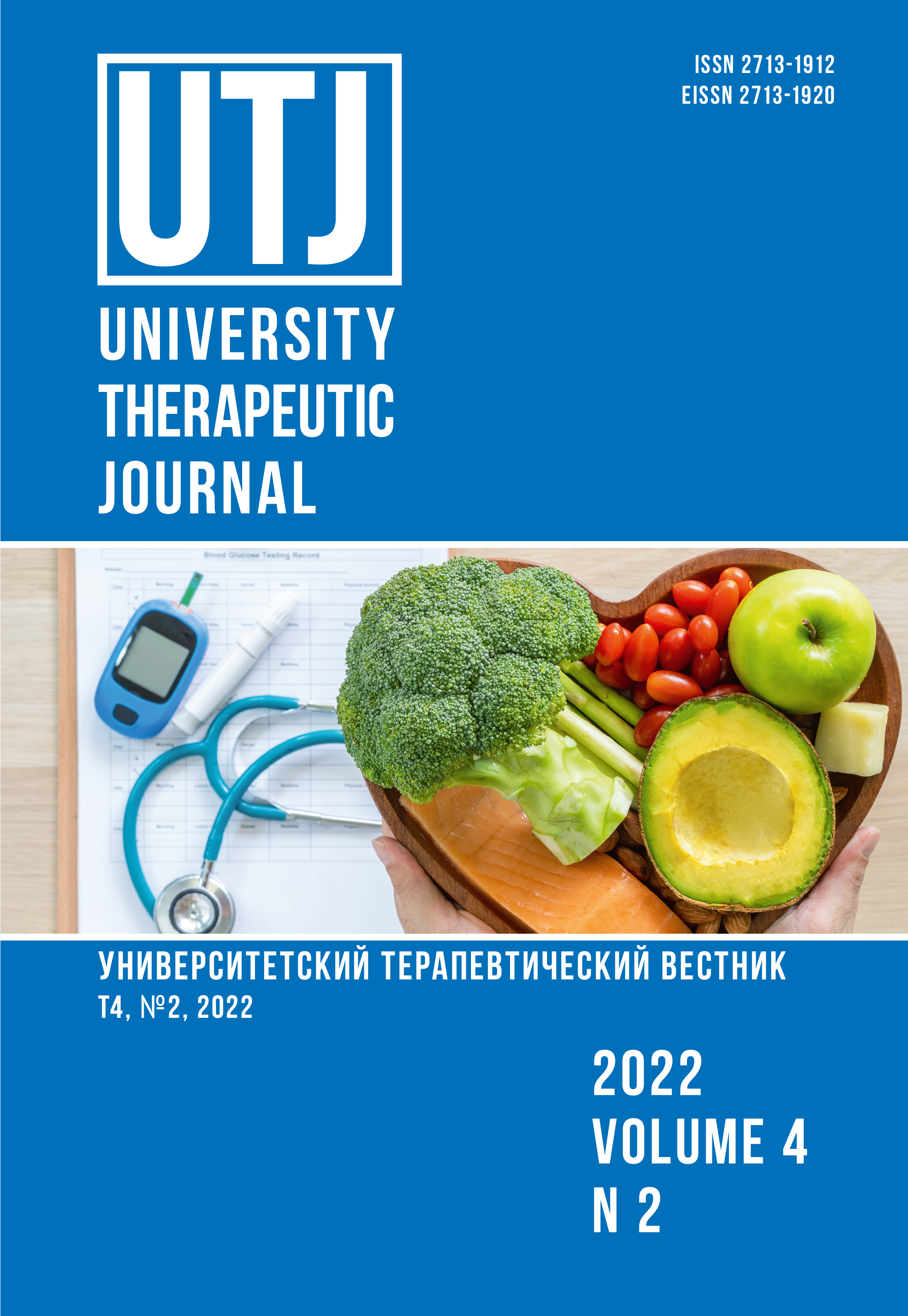Changes in the composition of gut microbiota in an experimental model of systemic inflammatory response in rats of different ages
Abstract
The aim of this work was to study qualitative and quantitative changes in gut microbiota in an experimental model of systemic inflammatory response syndrome (SIRS) caused by chemically induced colitis and complicated by antibiotic -induced dysbiosis in Wistar rats under the influence of probiotic therapy. Modeling of SIRS using broad -spectrum antimicrobials was characterized by a decrease in titer of potentially beneficial microorganisms with an increase in titer of opportunistic representatives, such as Proteus spp., K. oxytoca. There was a decrease in the total bacterial number, suppressed representation of lactobacilli, bifidobacteria, Akkermansia muciniphila and F. prausnitzii and an increase in the relative number of gram -negative bacteria. Healthy rats aged 12-14 weeks were marked by the absence of such conditionally pathogenic representatives of normobiota as Proteus spp., Klebsiella oxytoca and Enterobacter spp. in the faeces with their manifestation after the SIRS simulation. When probiotic strains were administered to rats aged 8-9 weeks, there was an increase in the total bacterial number and F. prausnitzii with increased colonization resistance due to the growth of the Bacteroides spp. population. The study of the causes of these differences is important for understanding the prospects for the use of probiotic drugs in different periods of ontogenesis.


